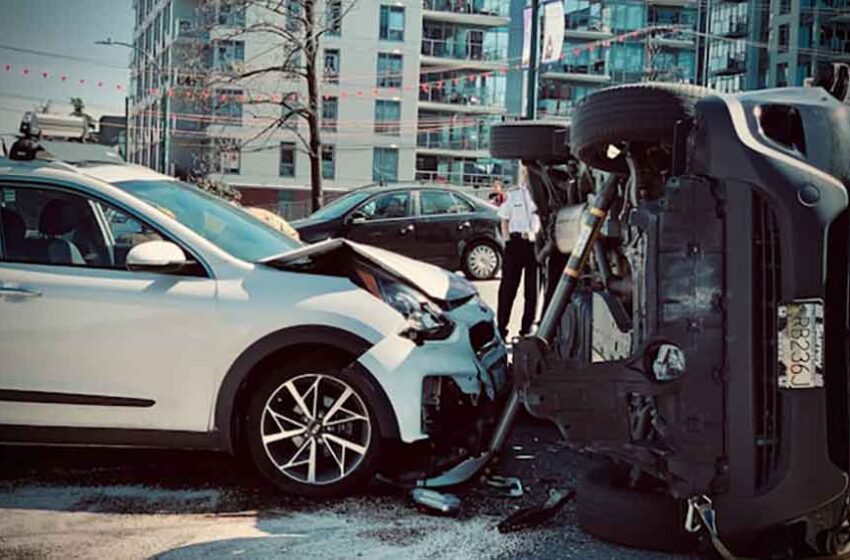10 Things to Know If You’re Injured in a Car Crash

A car accident can be a distressing and overwhelming experience. Protecting your health, legal rights, and financial situation depends on knowing the key actions to follow after an automobile accident injures you. If you find yourself hurt in a vehicle crash, this article examines ten key things to know. It provides direction on how to negotiate this difficult period with clarity and confidence.
Immediate Actions After the Crash
Dealing with a vehicle accident injury mostly depends on understanding what to do right after the collision. The first concern should be safety; if at all feasible, find a safe place apart from traffic to prevent more damage. Even if injuries seem small, calling emergency assistance is essential since some injuries cannot be immediately clear. Medical aid and scene documentation by emergency personnel might be rather important later on for insurance and legal needs. Steer clear of abandoning the scene since this can lead to legal action.
The Importance of Medical Evaluation
Obtaining a thorough medical checkup following any car collision is crucial. Though they cannot display symptoms right away, injuries, including concussions, internal bleeding, or whiplash, can cause major problems if addressed. Comprehensive tests and imaging studies let doctors find hidden injuries. Medical records also are essential proof linking the damage to the accident, thereby supporting possible claims. Ignoring medical advice can be bad not just for health but also for insurance and legal claims, as recorded evidence of injuries is usually required.
Documenting the Incident Thoroughly
Accurate documentation following an automobile accident can significantly affect the resolution of any claims or disputes. Getting as much information as possible at the site is critical. These include photographing the cars, the collision site, any visible injuries, and any relevant traffic signals or signs. Gathering contact information from other drivers, passengers, and observers can help with an investigation. To maintain clarity, keep a detailed personal record of the accident’s occurrences, injuries sustained, and any dealings with insurance agents or officials.
Understanding the Role of Insurance Companies
Dealing with insurance providers following a car accident calls for great thought. In order to safeguard their financial interests, insurers often strive to reduce payout amounts; this can result in pressure techniques, or fast settlement offers that might not fully cover damages or medical bills. Review any settlement offer carefully and try not to accept it until you fully know the degree of damage and financial impact. Policies on insurance can be complicated, and claims procedures differ greatly. One should keep thorough records of all correspondence with insurance agents.
Knowing When to Consult Legal Expertise
When injuries are significant, or liability is questioned, contact with an experienced attorney can be critical. Legal professionals guarantee that harmed parties get the compensation they are due by helping negotiate the complexity of personal injury law. If necessary, a qualified attorney can help with insurance company handling, evidence collecting, and judicial representation of interests. Engaging an experienced California car accident lawyer from a reputable source gives access to knowledge catered to local laws and regulations, providing extra protection and direction. Selecting a trustworthy expert experienced with vehicle accident events is essential since specialized expertise can significantly affect results.
Recognizing the Impact of Emotional Trauma
After a car crash, physical injuries are only one issue; mental trauma also frequently follows such events and can have long-lasting consequences. Following the accident, emotions of anxiety, fear, or melancholy can surface and occasionally interfere with everyday living or recuperation. Acknowledging these emotional reactions is crucial; hence, consulting mental health experts could help. Legal claims can also be influenced by emotional stress, in which case psychological damage is acknowledged as part of the harm.
The Importance of Following Medical Advice
Proper healing and supporting injury claims depend on following medical advice. Ignoring treatments, physical therapy, or follow-up visits will slow down healing and raise doubts about the degree of damage. Clear medical history is established by regular recording of diagnoses, treatments, and progress made by healthcare practitioners. When arguing a matter before courts or negotiating settlements, this background is quite helpful. Following medical advice helps restore functionality, lowers problems, and improves outcomes beyond only legal considerations.
Being Aware of Statutes of Limitations
Injured parties must be aware of legal limits, known as statutes of limitations, which limit the period for filing claims or lawsuits following a car accident. Although jurisdiction and the type of claim determine these time constraints, generally quick response is required. Ignoring filing within the given period can cause one to lose their right to seek compensation completely. Early legal advice can help to explain the particular deadlines relevant to a matter, therefore enabling a well-prepared and timely response to safeguard one’s rights.
Managing Financial and Employment Implications
Car accident injuries frequently result in unanticipated financial obligations, such as hospital bills, rehabilitation fees, and lost pay, owing to an inability to work. Avoiding financial difficulty depends on careful planning for these outlays. Maintaining records of time missed from work, receipts, and all medical bills will help to show the whole degree of financial influence. Talking with companies about the matter and possible concessions could also be required. Approaching these issues early on helps to keep stability during recovery.
Planning for Long-Term Recovery and Compensation
Car accident injuries can necessitate long-term care, lifestyle modifications, and, in some cases, permanent changes. Long-term rehabilitation planning calls for comprehensive knowledge of the whole range of injuries and their repercussions. Compensation should represent expected future demands, including loss of earning ability or reduced quality of life in addition to present medical expenses. Inviting experts who can fairly evaluate long-term effects guarantees that rulings or settlements provide sufficient justification. This all-encompassing strategy protects future well-being and advances a road towards recovery of health and freedom.
Conclusion
Being injured in a car accident has a variety of consequences that extend beyond the immediate impact. Understanding the critical steps to take, from immediate safety precautions to long-term planning, enables those affected to defend their health, legal rights, and financial stability. This process requires early medical attention, complete documentation, understanding of legal time restrictions, and cautious cooperation with insurance companies. Understanding and using these key concepts will help people navigate the aftermath of an automobile accident with greater confidence and a clear path to recovery.





